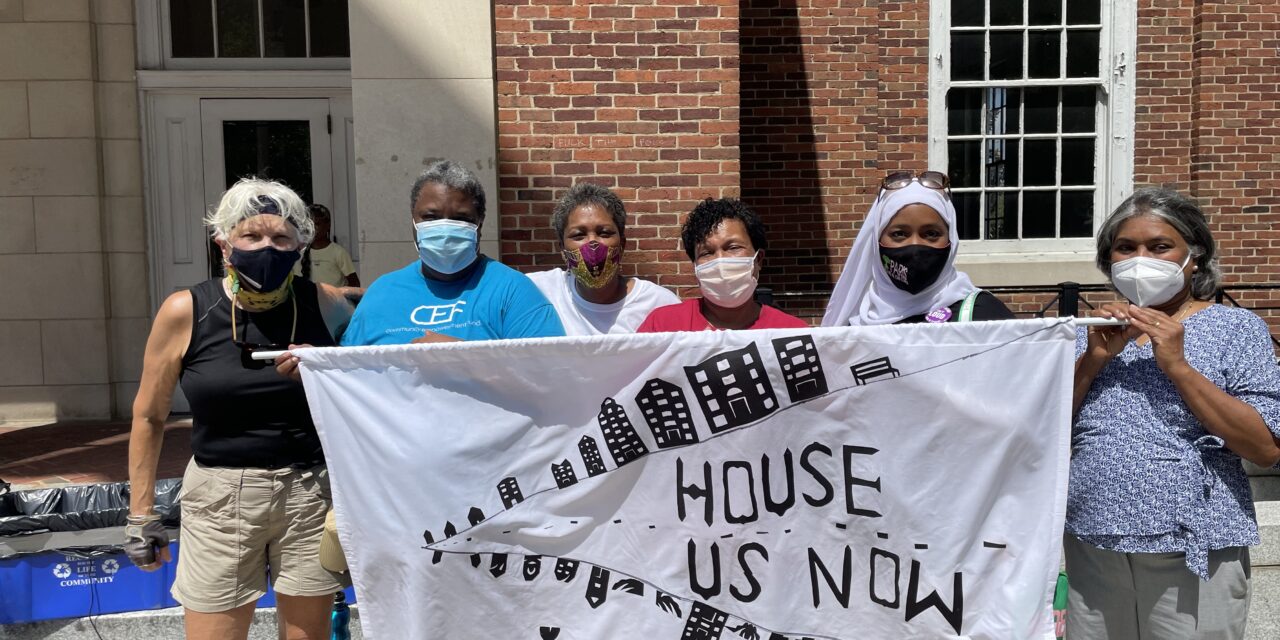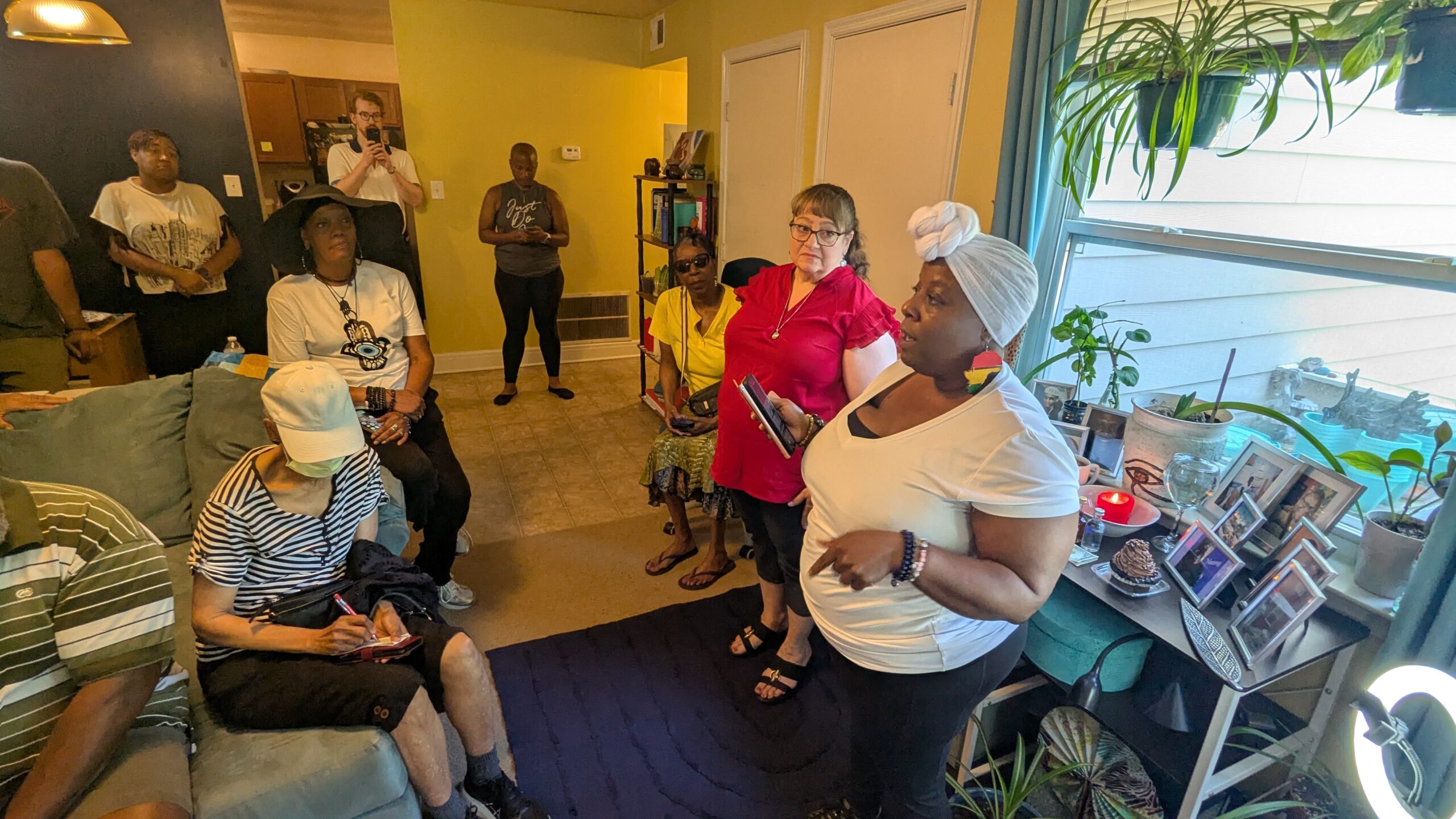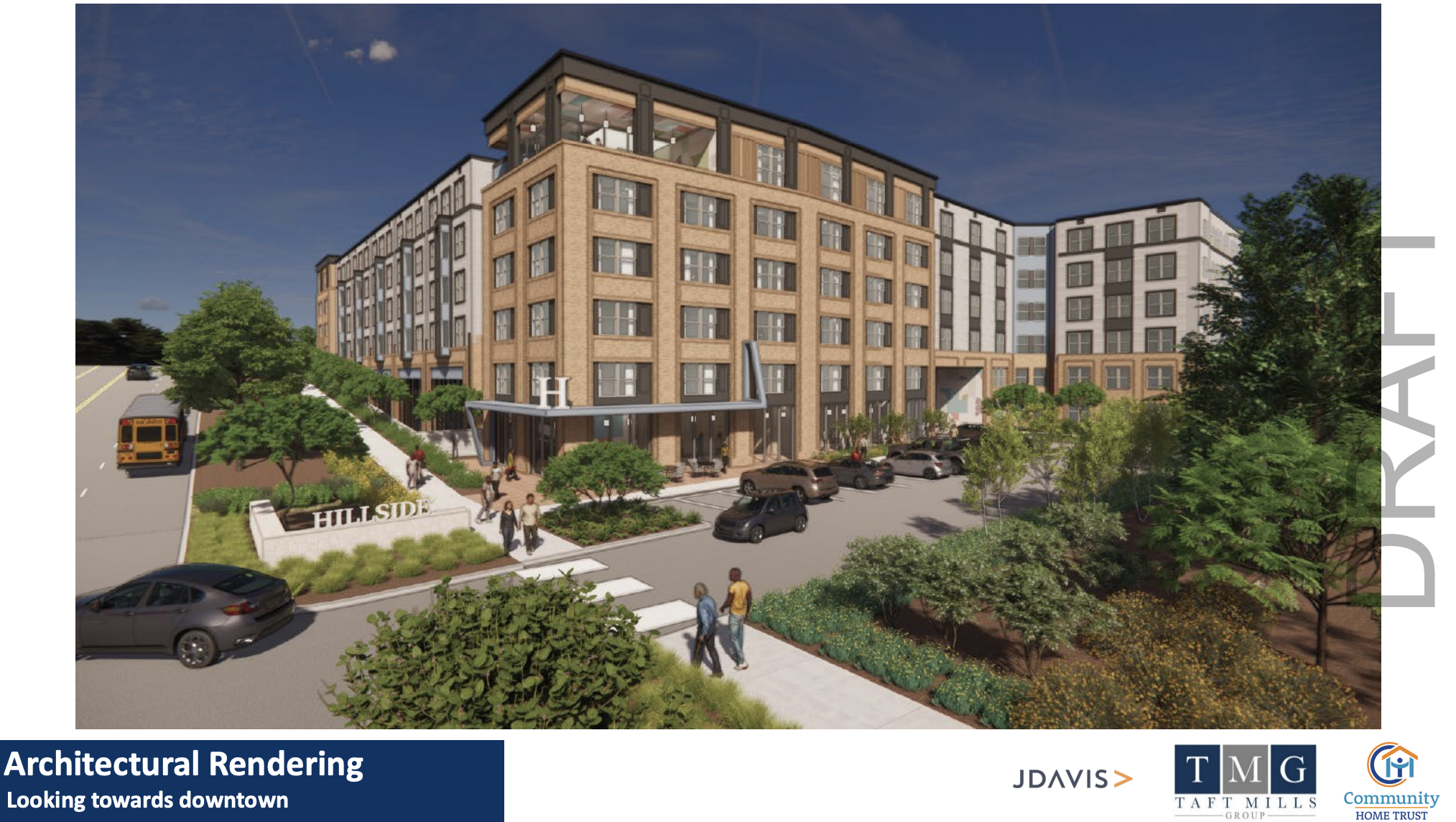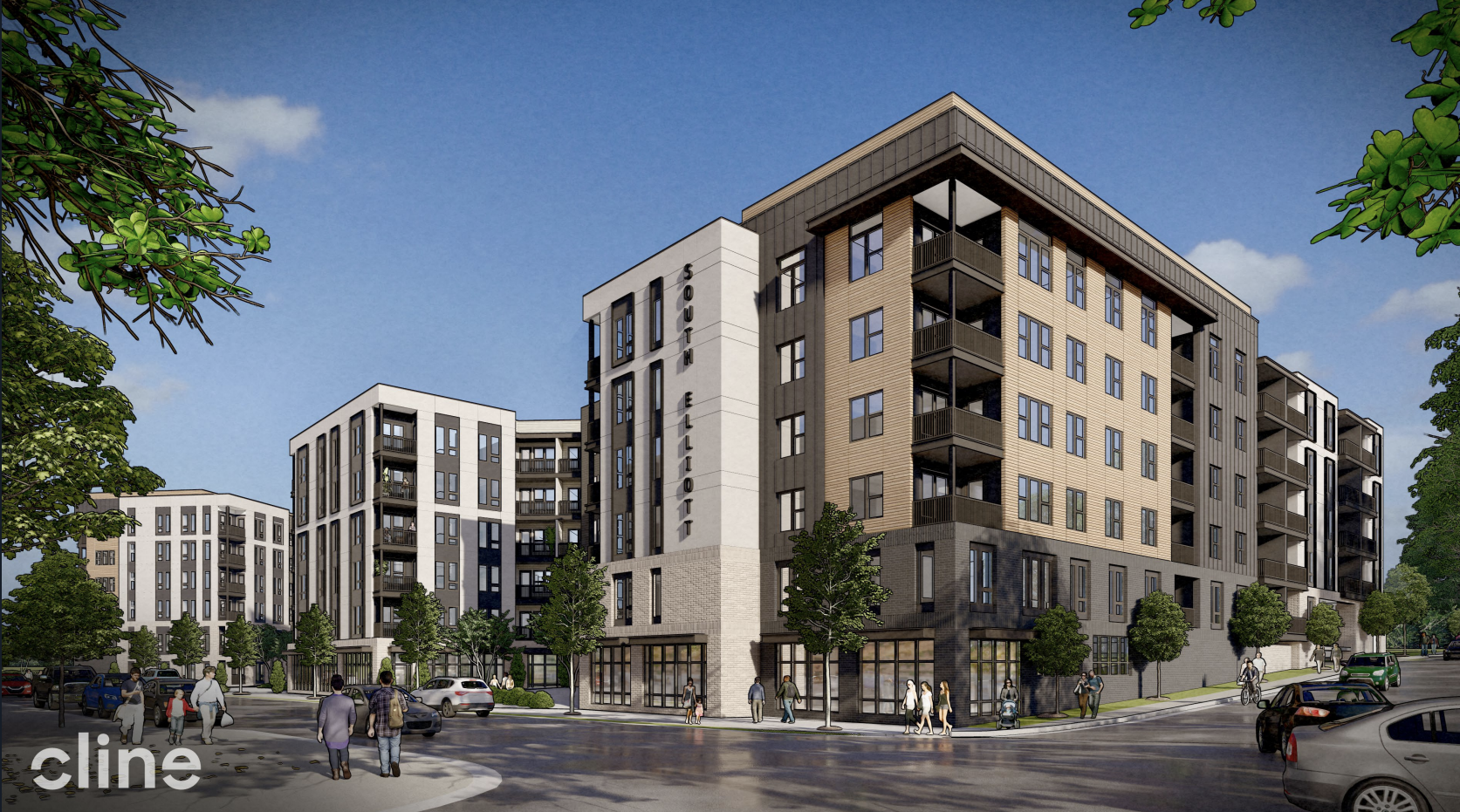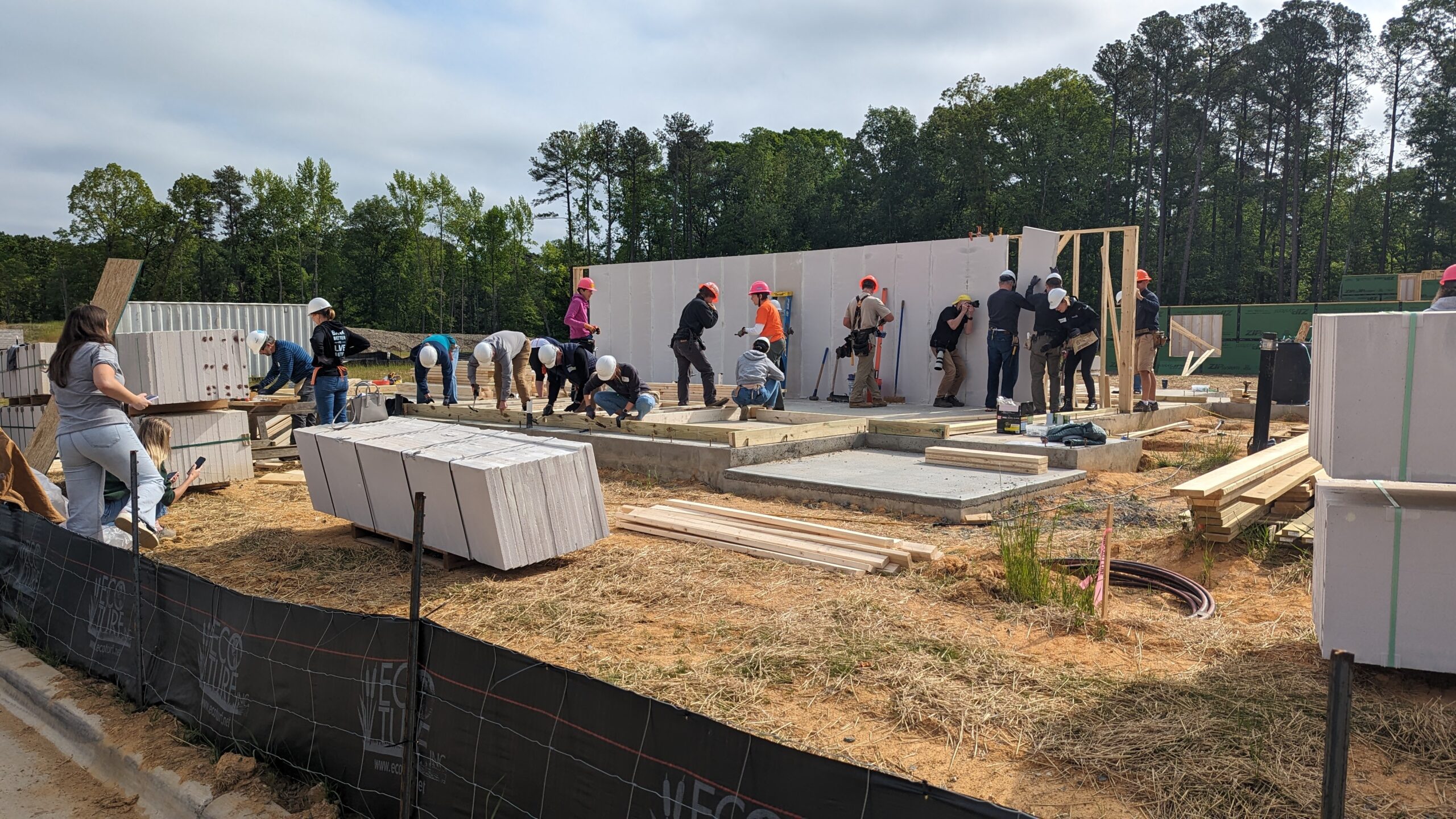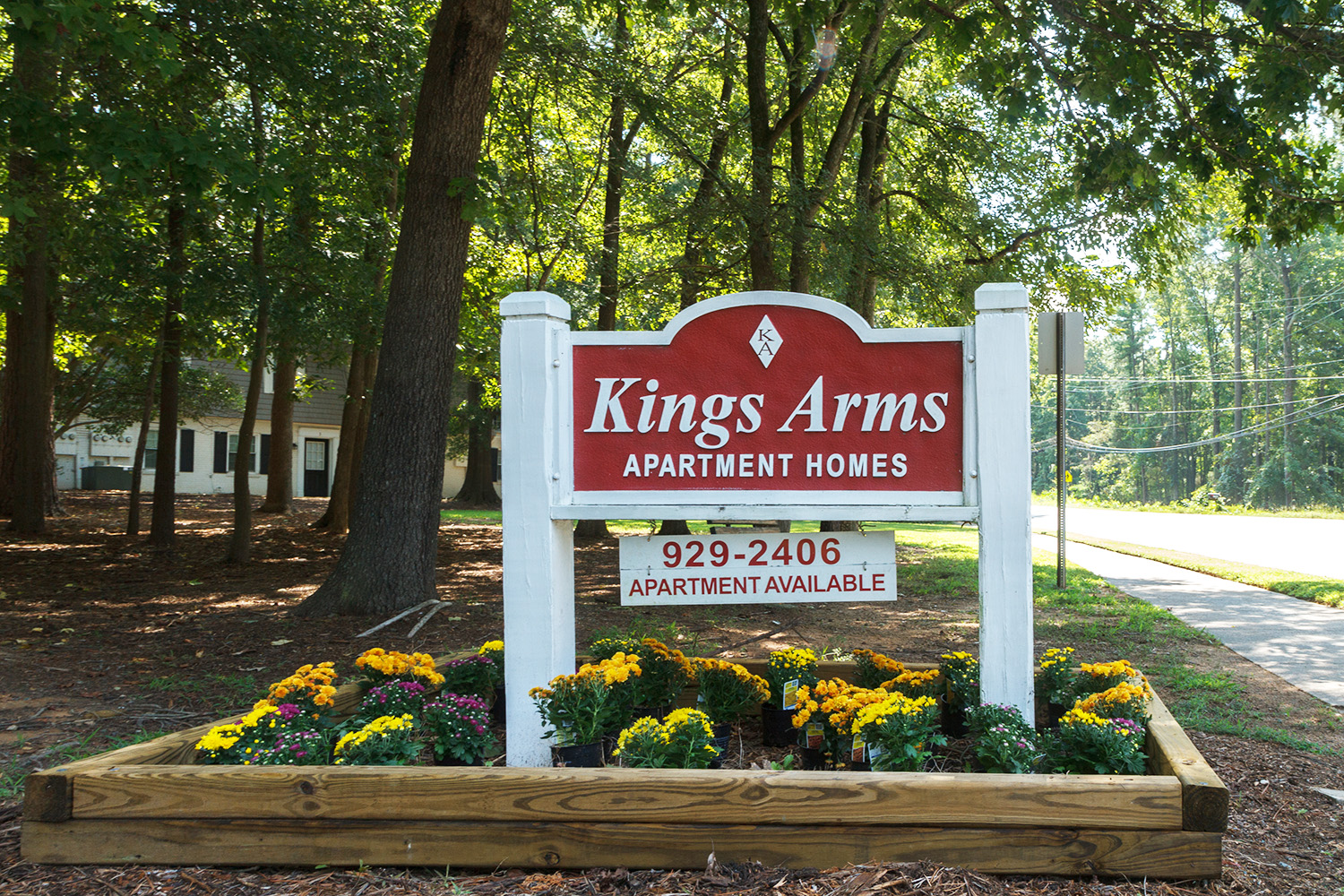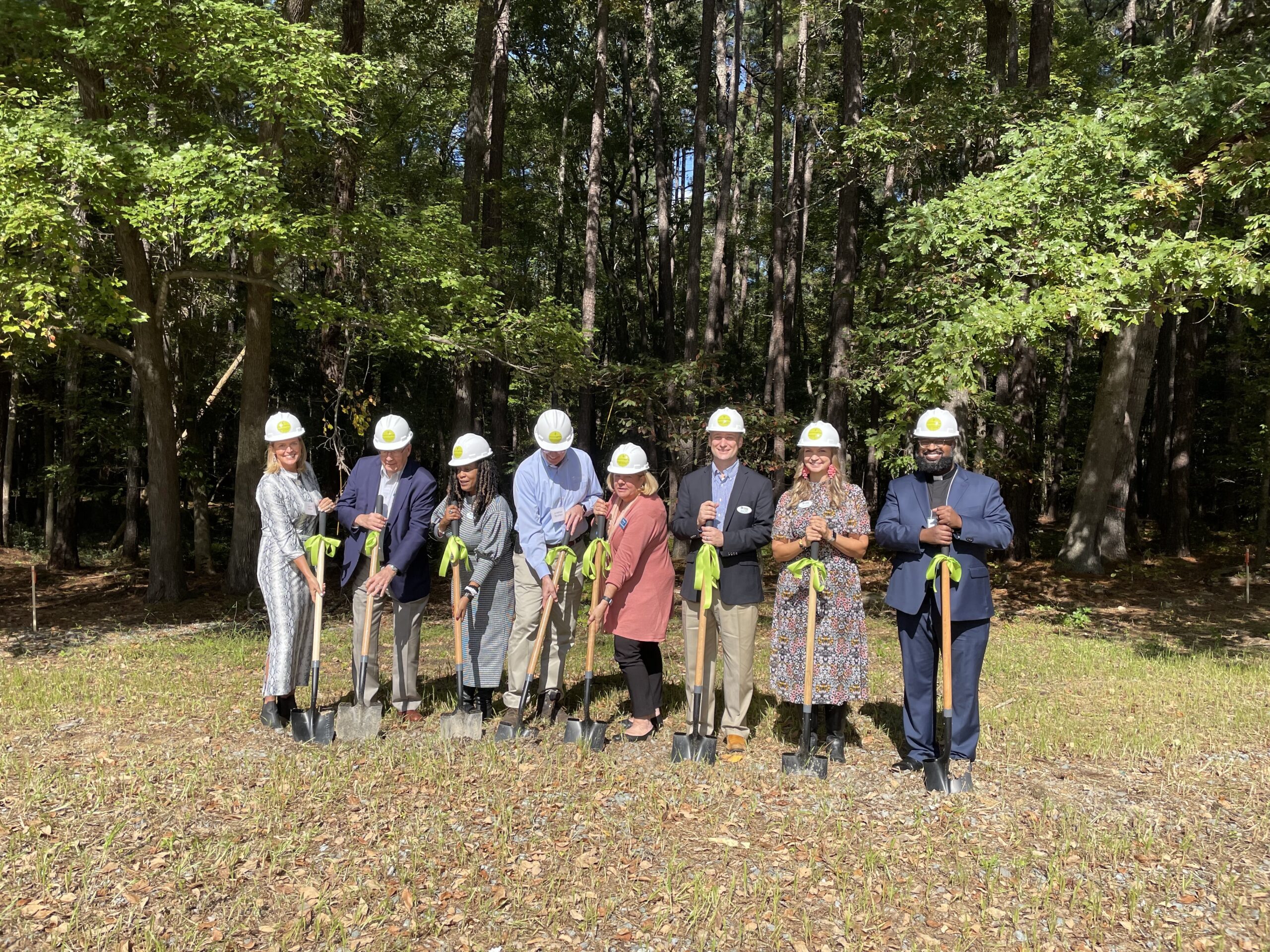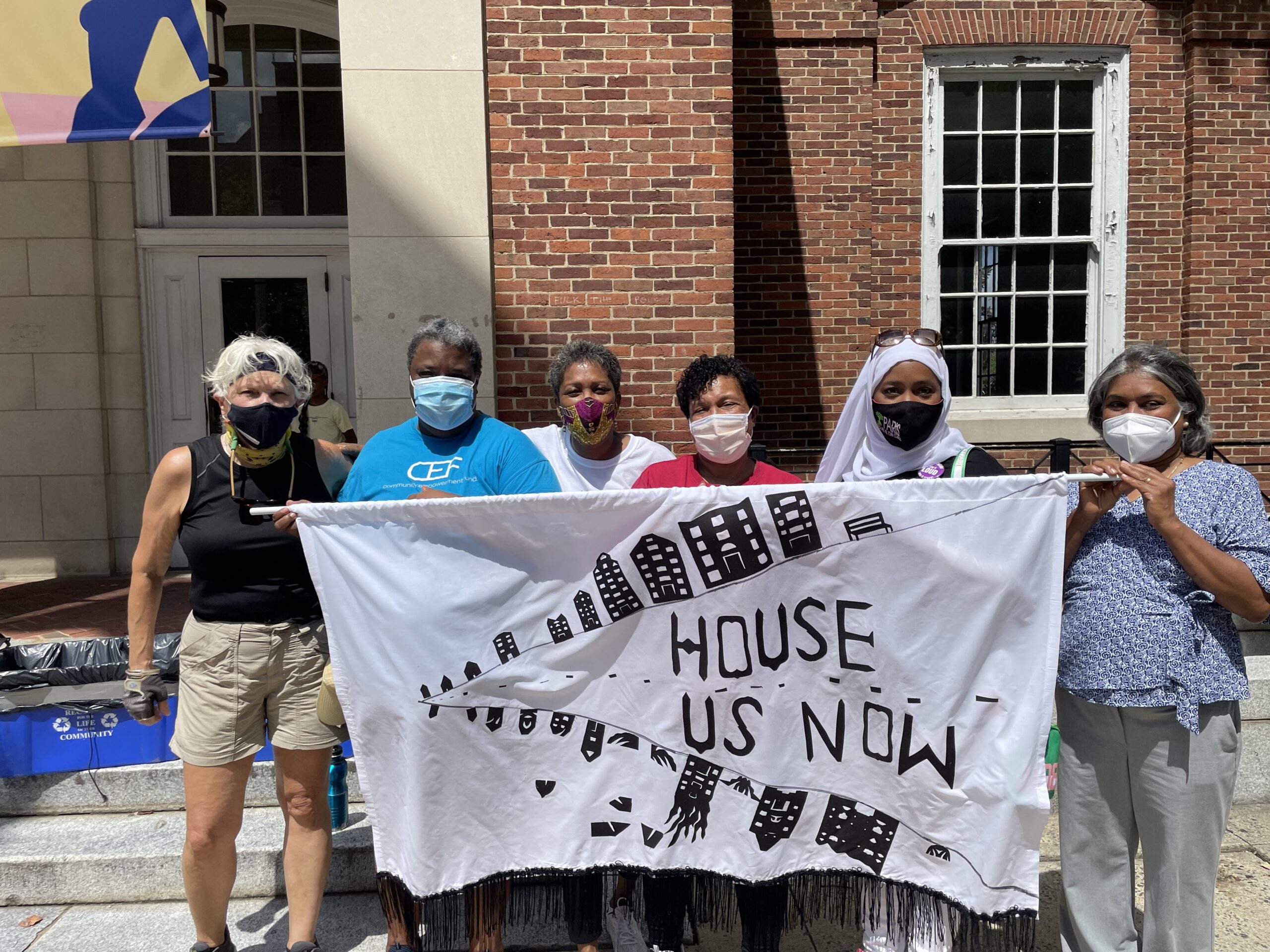A recent study from housing consultants in Chapel Hill showed the town needs to build approximately 485 homes every year to keep up with rising demand in the area. Local housing experts say the combination of an expensive housing market and rapid development in town is making that goal harder to achieve.
Housing consultants say the main way Chapel Hill needs to grow is by filling in the “missing middle,” through building middle income housing like townhomes, condos and duplexes. 97.9 The Hill recently hosted For’ Em on the Hill, and the missing middle was a major topic of the Housing panel.
Holly Fraccaro is the CEO of the Homebuilders Association of Durham, Orange, and Chatham Counties. During the panel, she said with so many people moving to the Triangle area, it’s hard to keep up with supply needs while managing the long-term goals of the missing middle.
“We know the need is massive in this area,” Fraccaro said. “We’ve got nearly 60 people a day moving to the Triangle. In Chapel Hill, one of the struggles we have is that we don’t have a ton of supply. Do we want them to move to our community? Absolutely yes, we do. Do we have a place for them to live? It’s slow going.”
According to a report from Wells Fargo, housing prices increased by 7.2 percent in the Durham-Chapel Hill metropolitan area in 2021 and increased 17.5 percent since the beginning of 2020.
The median home price in Chapel Hill is $498,000, which means a person must earn an annual income of $125,000 to qualify for a mortgage.
Those price increases have community advocates like Delores Bailey anxious about the future economic and cultural diversity of Chapel Hill.
“What concerns me most, especially as an African American, is that there are several minorities that are leaving our community,” Bailey said. “That’s the shame of this whole housing industry that’s going on.”
Bailey is the executive director of EmPOWERment Inc., which works to promote affordable housing and economic development in Chapel Hill. She said she believes Chapel Hill has become largely unaffordable, which is especially troubling given the decreasing amount of land available for development.
“We as a town, we hear the problem, we talk about wanting to fix the affordable housing piece of it,” Bailey said. “People listening need to understand that everyone is going to have to give a little bit.”
Bailey said compromising means welcoming new developments in town to promote density and affordability.
Fraccaro echoed that sentiment. She said the town needs to turn people from NIMBYs, a slang term for people say “not in my backyard,” to YIMBYs, or “yes in my backyard.” Fraccaro said the change in mindset is about understanding we cannot create a more affordable town without density.
“Let’s challenge this community,” Fraccaro said. “We like to talk a big talk— we want affordable housing, but we are against density. Those two things absolutely cannot happen. It’s a math problem: one plus one will always equal two. You cannot affect affordable housing and housing affordability without density.”
Currently, 90 percent of people working in Chapel Hill come from outside the community because they cannot afford to live and work here. Meanwhile, 60 percent of the people that do live here commute elsewhere for work.
Chapel Hill Mayor Pam Hemminger said she believes density, along with commercial development, are especially important to keep people and jobs in town.
“Chapel Hill punches above its weight, it tries to do more,” Hemminger said. “For the size town we are we do a pretty incredible job, but we still have so much more to do, and we get that. The math has to work for everybody or its not going to happen so it has to be these partnerships across.”
Hemminger said she believes one solution to this it to create public-private partnerships between the town, nonprofits, private entities and developers to fulfill the future vision. She said that future prioritizes missing middle housing.
“I don’t see any more single-family neighborhoods coming to Chapel Hill. I don’t see it,” Hemminger said. “The land is too expensive, the parcels are too small. I do see townhomes, condos and multifamily of different kinds.”
Hemminger said the town currently has about 6,000 units of multifamily rental housing in the works. She said she believes through best practices like diversifying the tax base, developing employer-assisted housing and transit-oriented development projects Chapel Hill can become a place inclusive of everyone.
For the full housing conversation visit For ‘Em on The Hill.
Chapelboro.com does not charge subscription fees. You can support local journalism and our mission to serve the community. Contribute today – every single dollar matters.

